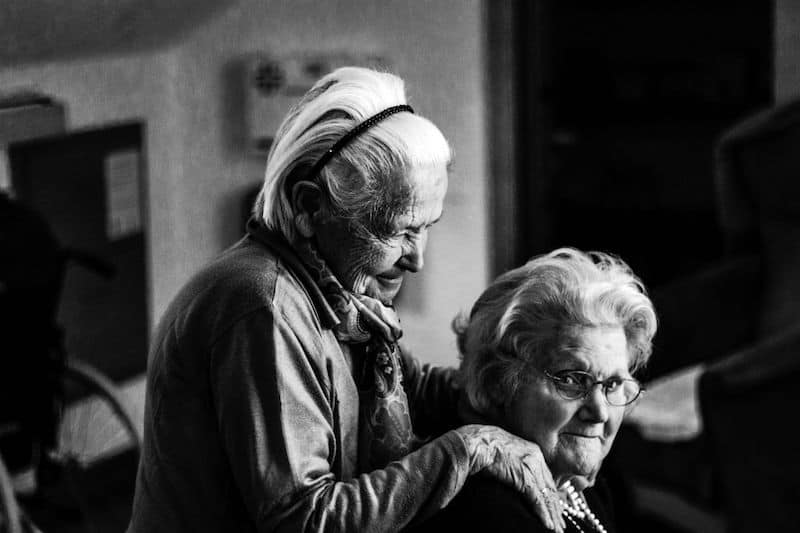
The LGBTQ+ community is a diverse one, consisting of various cultures, genders, and socioeconomic backgrounds. Yet, one sub-population often gets less attention than others: LGBTQ+ older adults.
Being an LGBTQ+ elder comes with unique health challenges. In addition to common senior health problems like arthritis and forgetfulness, LGBTQ+ older adults also face discrimination.
Fortunately, the world has changed dramatically in recent generations. While there is still room for improvement, LGBTQ+ folks enjoy more freedoms today than ever before. If you or a loved one is an LGBTQ+ older adult, try some of these healthcare tips.
Save money on healthcare as an older adult.
Hefty hospital bills worry many folks, but LGBTQ+ seniors, in particular, seem statistically more likely to experience financial hardship. For example, one study found that 50% of single LGBTQ+ seniors believe they will have to work beyond retirement age, as compared to 27% of single non- LGBTQ+ seniors.
If money is a concern for you, make note of the following money-saving tips:
1. Take advantage of your free yearly “Wellness” visit if you are covered by Medicare Part B.
2. Find affordable medications online from sites like Canada Med Pharmacy, which ships medicine from licensed pharmacies in countries where drug prices are more tightly controlled.
3. See if you can access a community health center in your area, which offers low-cost, accessible, or even free services.
Your health-care provider should be someone you’re comfortable with.
One person you should seriously consider disclosing your sexuality is your doctor. This is because LGBTQ+ patients may be at higher risk for certain health concerns. The more your health-care provider knows about you, the more accurate their diagnoses. To find a trusted health-care provider, take a look at the CDC’s list of LGBTQ+ health clinics by state and city.
Get in touch with your local LGBTQ+ support organization.
Having a strong social support network is a fundamental part of good health, not to mention a good mood! Getting involved with your local LGBTQ+ support organization can help you meet other LGBTQ+ adults with similar life experiences who are also interested in benefiting the community and making friends. You can find a community near you through CenterLink, plus helpful resources through the National Resource Center on LGBT Aging and SAGE.
Educate yourself on sexual health.
If you are an older adult, chances are your high school health classes didn’t cover anything other than heterosexual, cis-gender sexual health. LGBTQ+ individuals may be at increased risk of catching certain sexually-transmitted infections, so it’s important to catch up on sexual health knowledge if you’re sexually active.
For example, men who have sex with men are at increased risk of HIV and syphilis, while women who have sex with a woman are at increased risk of bacterial vaginosis.
Start researching LGBTQ+-friendly caregivers.
For many older adults, living in a senior care facility or hiring an at-home caregiver is a real possibility. However, finding an LGBTQ+-friendly facility or caregiver can be challenging. In some states, freedom of religion laws may still allow for organizations to legally refuse services to LGBTQ+ folks.
You deserve the same quality of care as anyone else. While it’s up to you to decide whether to disclose your sexuality or not, you’ll likely be more comfortable working with a service that is LGBTQ+-friendly. You can usually spot one by looking for rainbow logos and gender-neutral language like “life partner” or “spouse.”
Reach out if you’re experiencing emotional challenges.
Dealing with discrimination as an older person and as an LGBTQ+ person can be distressing. Today, both patients and health-care providers are becoming more aware of the importance of mental health. If you feel unwell emotionally, don’t hesitate to ask for help from your family doctor, mental health professional, or even a trusted friend or family member. The earlier you seek help, the better the outcome.
Your mental health is just as important, if not more, than your physical health. After all, how can you enjoy the freedom of retirement or the company of grandchildren if your mental health is suffering?
Continue living a healthy lifestyle.
Everyone should strive to live as healthfully as they can. This means:
- Being active at least three days a week, if not more
- Eating nutrient-rich whole foods and avoiding fast and processed foods
- Getting regular health screenings and vaccinations, as recommended by your doctor
- Quitting smoking and limiting drinking
- Taking care of your mental health and avoiding stress
Equal Quality of Care for the Stonewall Generation
Many baby boomer LGBTQ+ folks witnessed or were part of Stonewall, perhaps history’s most significant event for the modern LGBTQ+ rights movement. Yet, despite their enormous contributions to fighting for freedom, LGBTQ+ seniors are often ignored in today’s discussion of LGBTQ+ issues.
Everyone deserves quality healthcare, no matter their age, gender, or sexual orientation. The barriers to inclusive healthcare can be frustrating, but thanks to an ever-evolving society, there are resources and services available.





